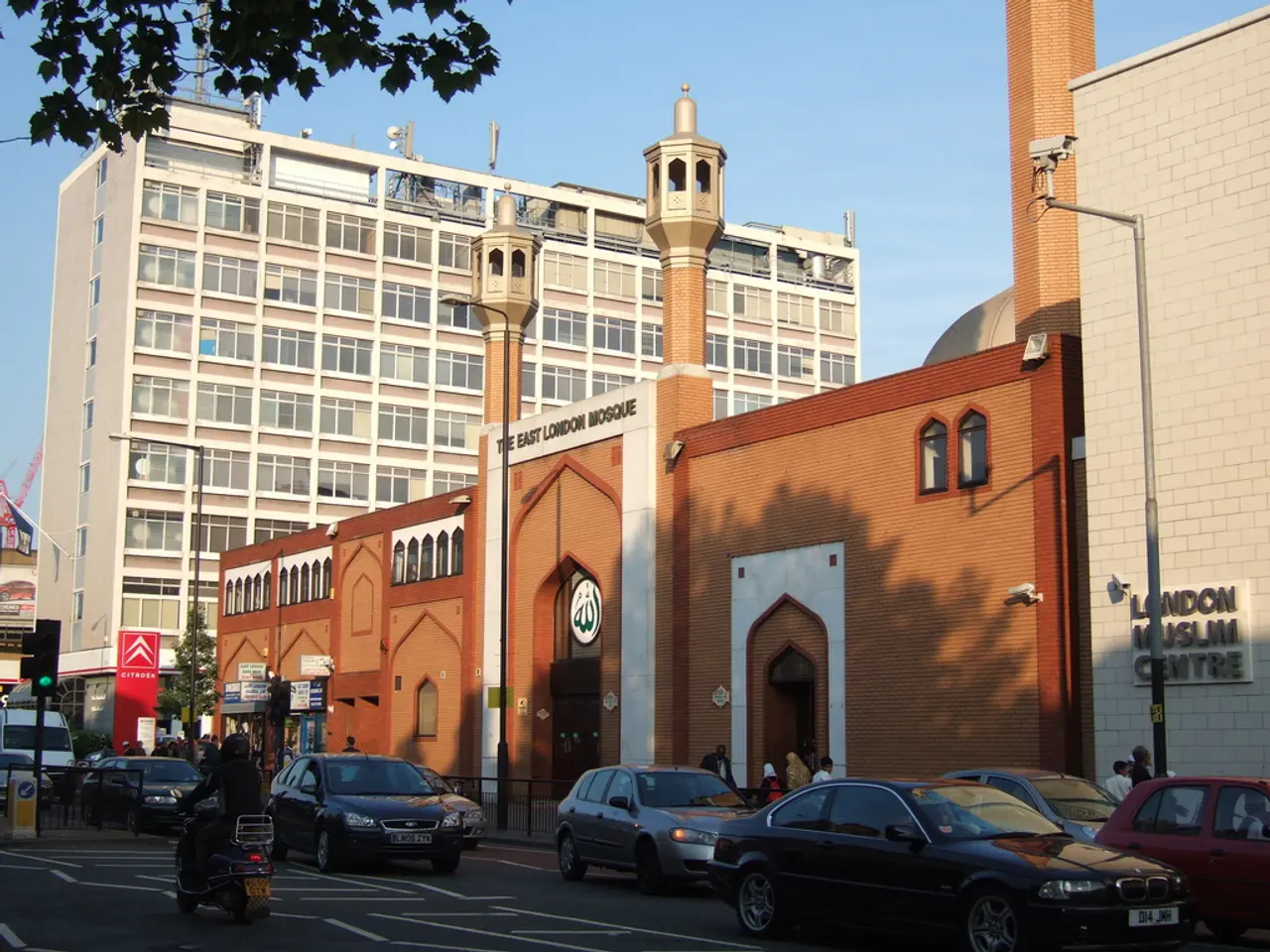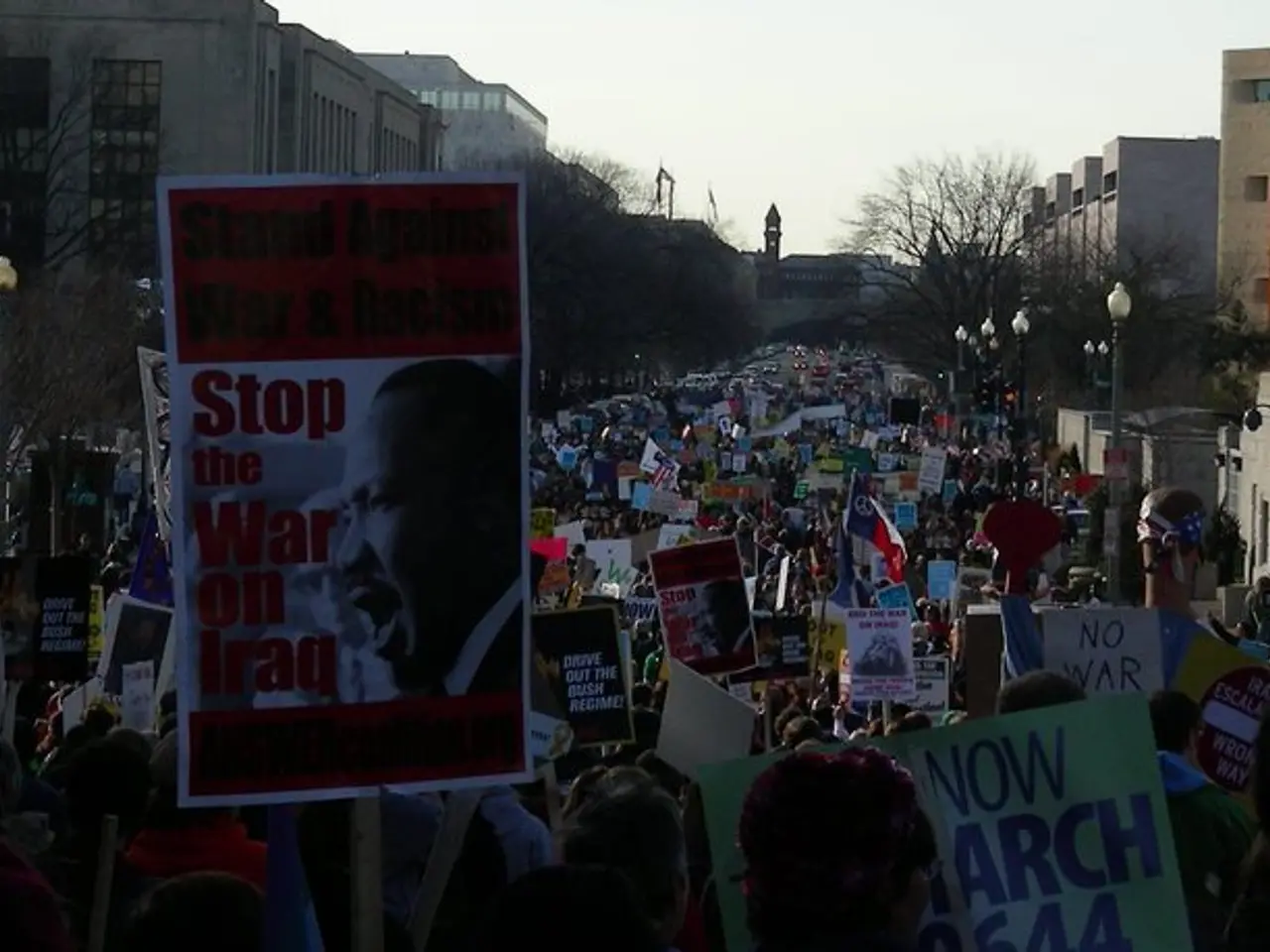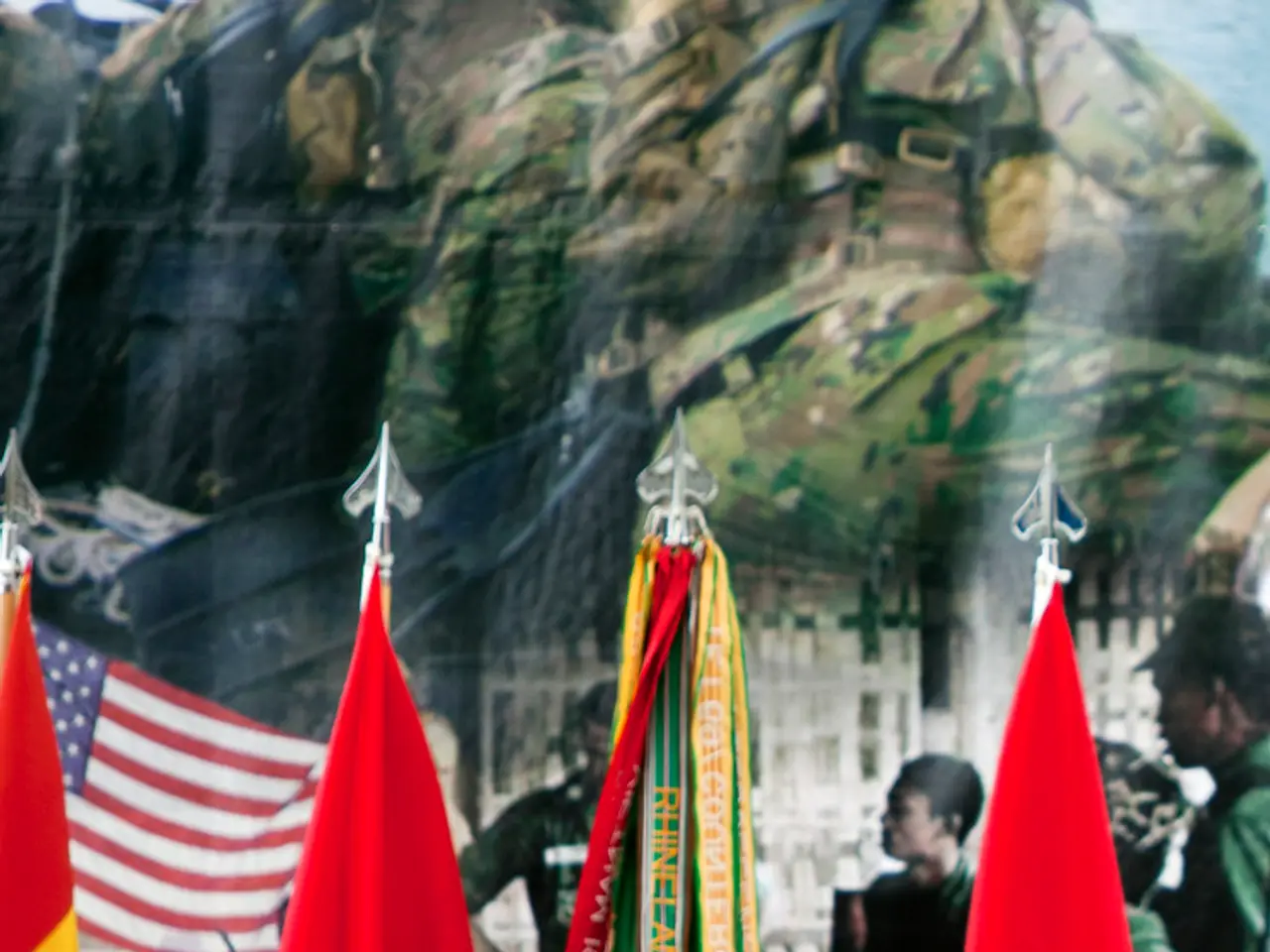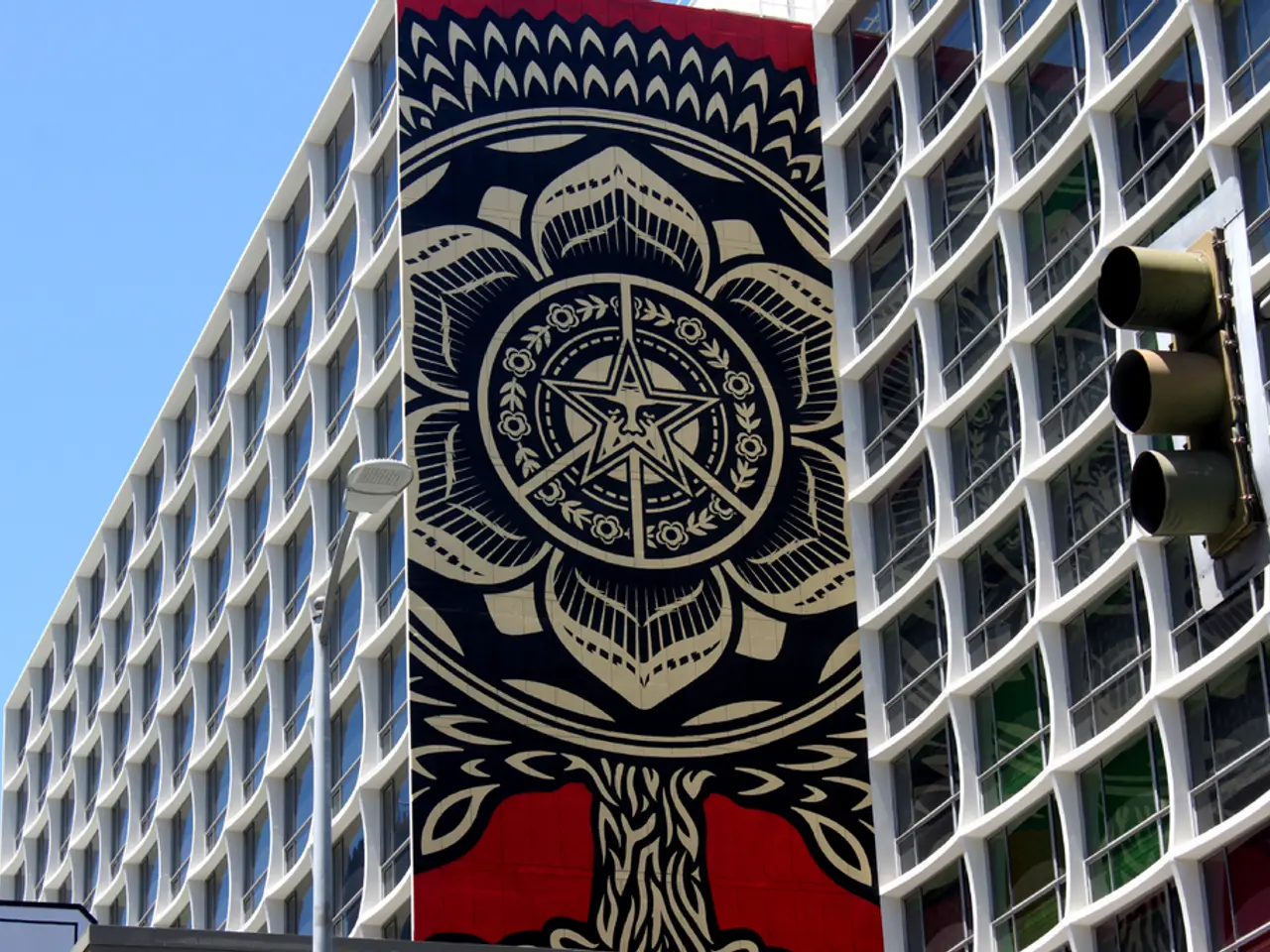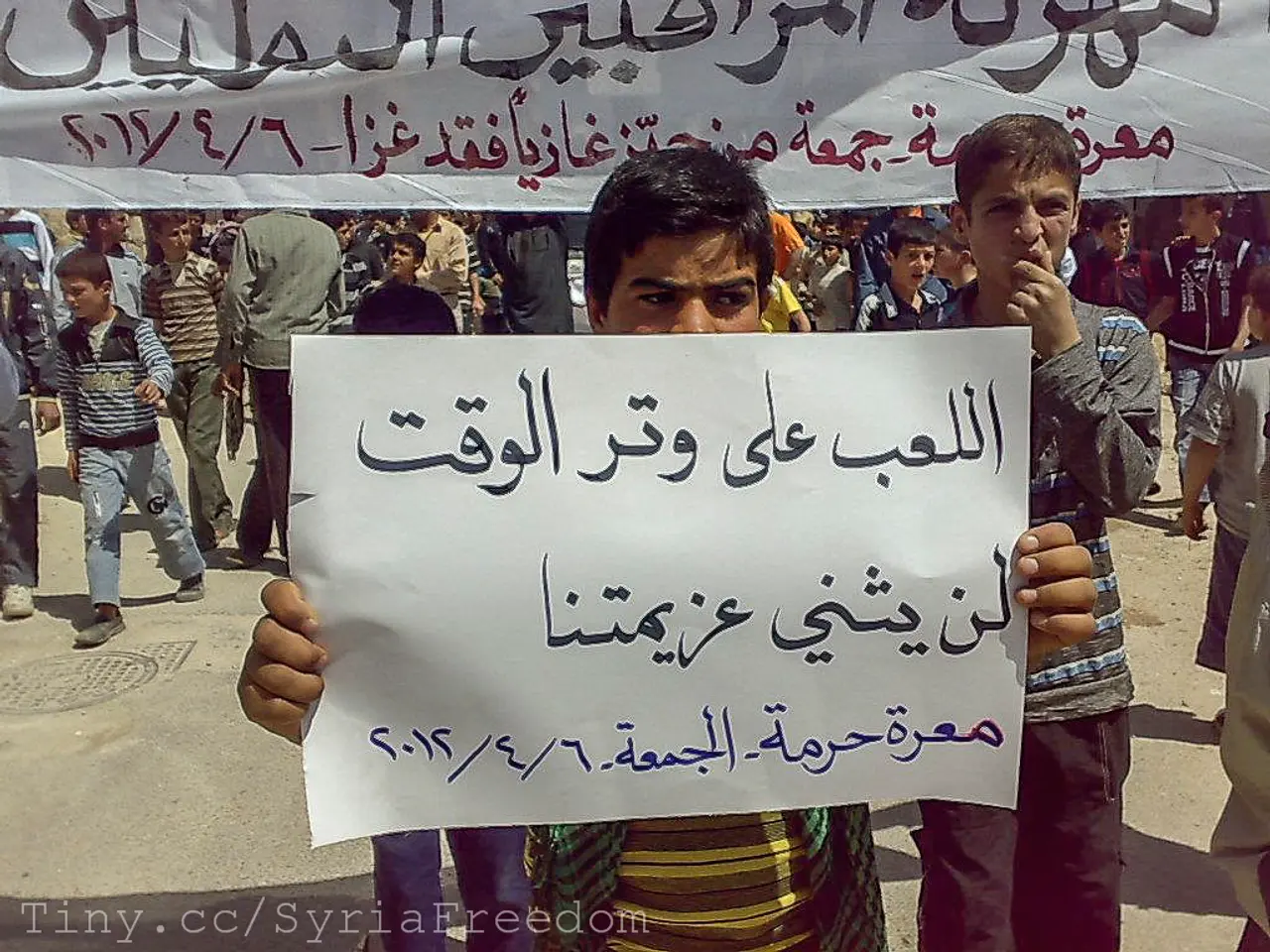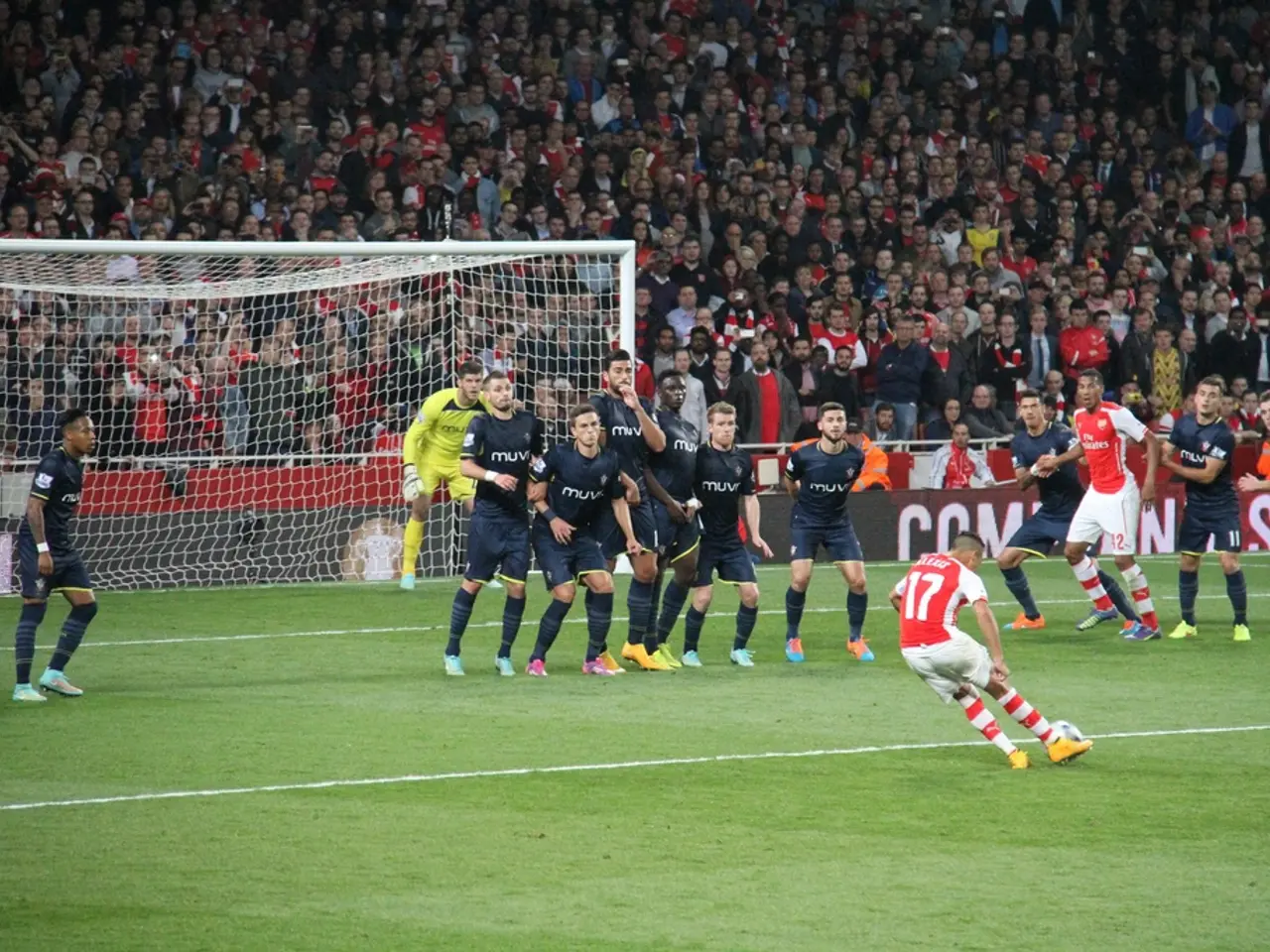Five years post the devastating Beirut port blast, Lebanon's administration turns its attention towards pursuing justice
In the heart of Beirut, five years have passed since the devastating port explosion that claimed countless lives and left many more with physical and emotional scars. The investigation into the tragedy, which has been marred by political interference and resistance, continues to elude justice for the victims and their families.
Following a heavy defeat in its most recent war against Israel and the loss of its charismatic leader, Hassan Nasrallah, Hezbollah has lost its dominant position within Lebanon's political landscape. Yet, the heavily armed Shiite militia, supported by Iran, continues to exert political pressure that hinders the investigation into the port explosion.
The investigation, led by Judge Tarek Bitar, resumed in early 2025 after a two-year hiatus. The interim top prosecutor Jamal Hajjar overturned obstruction measures imposed by the former public prosecutor, Ghassan Oueidat, who had filed charges against Bitar and ordered the release of detainees and cessation of cooperation with the investigation in 2023.
Prominent figures, such as former Prime Minister Hassan Diab and Major Generals Abbas Ibrahim and Tony Saliba, have complied with summons and participated in questioning for the first time in years. However, others, including MPs Ali Hassan Khalil and Ghazi Zaiter, as well as the former prosecutor Oueidat, continue to obstruct the process by refusing questioning and invoking immunity.
Despite these partial advances, no one is currently in custody related to the case. Political and legal challenges continue to impede a comprehensive, transparent, and impartial inquiry. Victims' families and human rights organizations like Human Rights Watch and Amnesty International criticize the ongoing delays and obstructions, calling for an unobstructed investigation that covers the full chain of responsibility — domestic and international.
The government has pledged transparency and integrity in completing the investigation. There is also public interest in preserving the damaged wheat silos at the port as a memorial to the explosion and its victims. However, the path to accountability remains fraught with resistance from powerful political and security figures, leaving justice elusive for victims and their families despite international and domestic pressure for accountability.
Various theories about the port explosion, including the possibility of Israeli bombing or Hezbollah involvement, have circulated in Lebanon. Nawaf's government, which came to power in the wake of Hezbollah's military debacle, has requested that the country's army devise a plan to disarm Hezbollah. However, it remains unclear why more than 2,000 tons of ammonium nitrate were left unprotected in a warehouse at the port before exploding, and Hezbollah representatives have stated that they have no intention of relinquishing their weapons and demand the withdrawal of Israeli forces from southern Lebanon.
As hundreds of demonstrators marched from Martyrs' Square in the city center to the port, one speaker stated, "Hezbollah will not be forgiven for blocking the investigation." The cries for accountability echo through the streets of Beirut, with one relative of an explosion victim stating, "We want those responsible to be punished." The struggle for justice continues in this resilient city, as Lebanon navigates the complexities of its political landscape and seeks to hold those accountable for the tragic explosion of 2020.
- In the ongoing investigation into the port explosion, individuals such as MPs Ali Hassan Khalil and Ghazi Zaiter, as well as the former prosecutor Ghassan Oueidat, consistently refuse questioning and invoke immunity, obstructing the process.
- Pressure for an unobstructed investigation that covers the full chain of responsibility — both domestic and international — continues to mount, with organizations like Human Rights Watch and Amnesty International criticizing ongoing delays and obstructions.
- Despite the government's pledge of transparency and integrity, the path to accountability remains challenging due to resistance from powerful political and security figures, making justice elusive for victims and their families in the wake of war-and-conflicts and the complex politics of policy-and-legislation.
